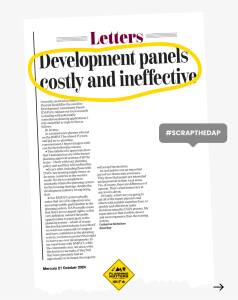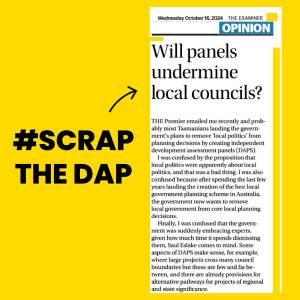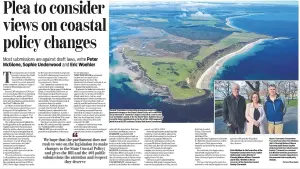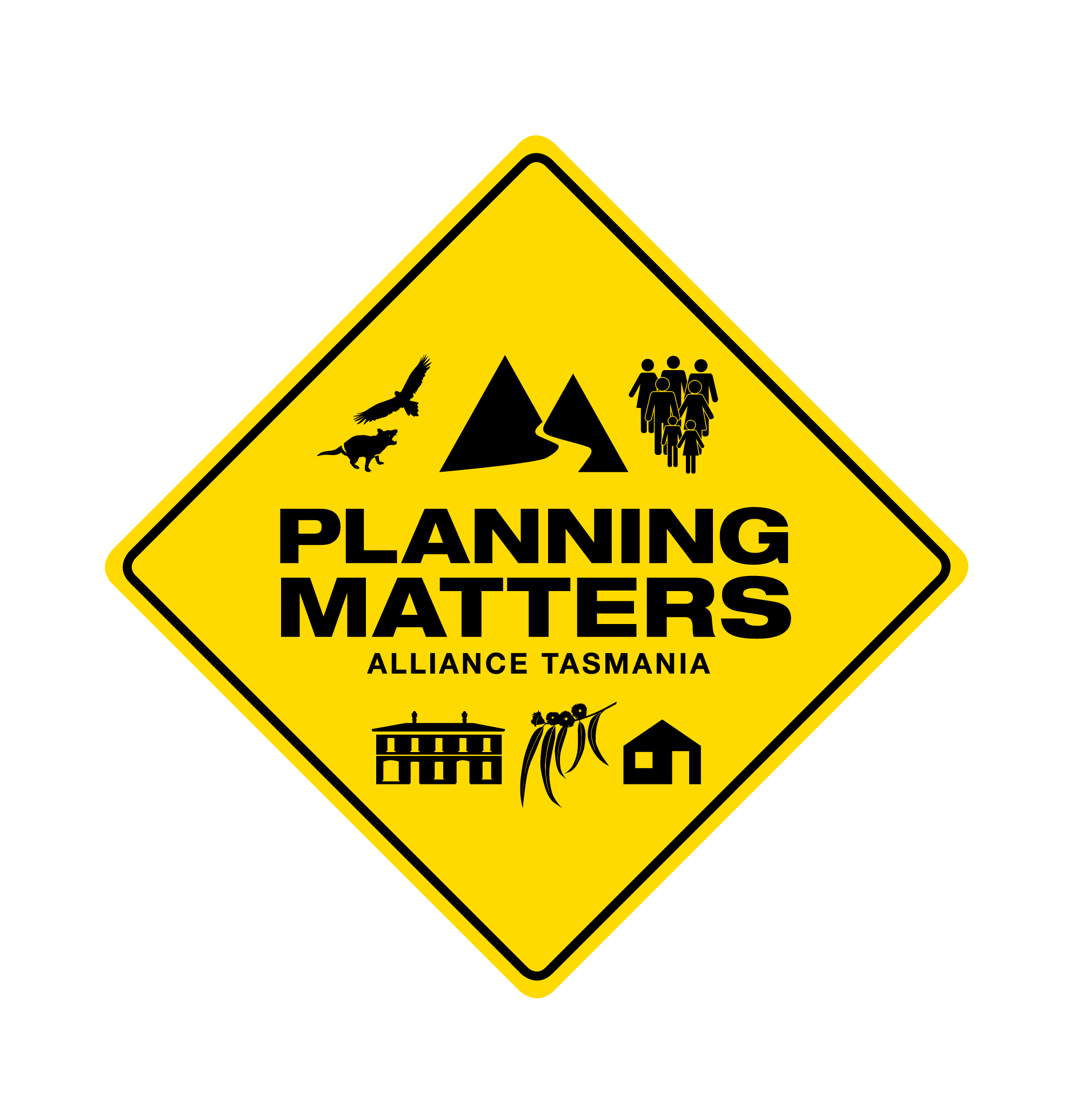- Talking point
Talking Point: What do Cambria Green, Westbury prison, Lake Malbena and cable cars have in common?
Media Enquiries
Sophie Underwood
PMAT State Director
sophie_underwood@hotmail.com
0407 501 999
Please share:
Many controversial projects which Tasmanian communities are concerned about could be taken away from councils for a fast-tracked special approval. We’ve come too far to hand power to an unelected panel, says Sophie Underwood.
OVERHAUL:Now is not the time to be consulting on undemocratic changes to the planning system.
As Tasmania continues to deal with the upheaval of COVID-19, many are calling for societal renewal and a rebuild strategy that puts people and their place in our community front and centre.
It is a perfect opportunity for Premier Gutwein to lead for all Tasmanians.
Instead of doubling down on the divisive thinking of the past — pitting developers against the community in a flawed “jobs versus the environment” contest — now is the time to ensure Tasmania’s direction is set by transparent and independent decision-making that enshrines a strong role for the community.
Central to this is our planning system, and a future where the public, development sector and environment are treated equally.
This will ensure a healthy democracy and Tasmania’s best future.
Sadly, this doesn’t look like Premier Gutwein’s agenda.
This Friday, submissions close on the highly contentious Major Projects legislation, and a parallel review of the Tasmanian Planning Commission.
Both have the potential to undermine our planning system and weaken our democracy.
Under the proposed legislation, the Planning Minister would have unchecked power to declare virtually any development a major project — from a subdivision to a pulp mill.

Artists impression of the proposed development of a cable car on Mt Wellington / kunanyi by MWCC.
Many controversial projects which Tasmanian communities are concerned about could be taken away from councils for a fast-tracked special approval, such as Cambria Green, Westbury Prison, skyscrapers in Hobart and Launceston, Lake Malbena’s luxury huts and cable cars proposed for kunanyi/Mt Wellington, Mt Roland and Cataract Gorge.
A healthy democracy and society ensures people have the ability to participate in land use planning and development decisions in a meaningful way.
This ensures people have a say in the future shape of their suburb, the liveability of their cities, towns and rural areas, how Aboriginal-built and natural heritage is managed, and what happens in our national parks and reserves.
A healthy democracy and robust planning system gives people recourse to challenge bad decisions and have them reviewed.
Tasmania was once admired from interstate for aspects of our planning system. But acquiescence to the policy demands of developers and lobbyists has seen government erode the integrity of our planning system and the way decisions are made.
The new statewide planning scheme reduces the community’s right to have a say over developments from residential areas to national parks and, in many instances, removes appeal rights.
Despite what the Gutwein Government is saying about the Major Projects Bill, the independent Tasmanian Planning Commission will not be assessing major projects via the proposed new process.

Checks and balances are being removed.
Despite demonstrable failure in other states, power to assess and approve developments will be given to an unelected Development Assessment Panel that may include no Tasmanian Planning Commission person.
The normal checks and balances are being removed in favour of developers.
The community would have no right to appeal approvals of major projects, local elected councillors have no role in the decision over a major project, and existing planning scheme rules can be overridden without any oversight by the TPC or community.
Given Tasmania has a Project of State Significance process (which delivered Basslink) and, as yet unused, a Projects of Regional Significance assessment process, the Gutwein Government has failed to articulate why this new major projects legislation is really needed.
As if a new, fast-track development assessment for controversial projects is not enough, Premier Gutwein is also reviewing the role and function of the Tasmanian Planning Commission.
Changes to the TPC could also fundamentally change the integrity of the planning system, and how we the community are involved in the resource management and planning decisions.
Communities are concerned the TPC Review is part of a broader move to a minister-centred model of decision-making, displacing the role of the TPC as an independent decision-maker and adviser.
This is important because the TPC is an independent expert body, which provides the community with a fair hearing on resource management and planning matters and considers all costs and benefits: social, community, economic and environmental.
Planning for Tasmania’s future is too important to erode the role and rights of the public for fast-track controversial projects that enhance the profitability of developers.
Now is not the time to be consulting on undemocratic changes to the planning system, especially for the vast majority of stressed Tasmanians who have lost their job, closed their business, are teaching children at home and are worrying about elderly relatives they can’t visit.
As the world talks about rebuilding better in the wake of COVID-19, Tasmania should seize the opportunity to actually do it. As a start, let’s ensure development decisions are fair, democratic and in the public interest. #planningmatters
Sophie Underwood is the state co-ordinator of the Planning Matters Alliance Tasmania, which is made up of more than 60 community groups.
Related News & Media

Mercury Opinion Piece: Development panels costly and ineffective
An open letter to Jeremy Rockliff by an ex-planning commissioner, Catherine Nicholson on the ineffectiveness of development assessment panels.

Examiner Opinion Piece: Will panels undermine local councils?
The independent panel members [DAPs] are generally pro-development and pro government of the day. They are anything but independent or apolitical.

Take Action for Tasmania’s Coasts: Make a Submission
The Tasmanian Government has released a State Coastal Policy Position Paper, seperate from the Draft Validation State Coastal Bill 2024, for public comment to fast-track

Mercury Opinion Piece: Plea to consider view on coastal policy changes
Most submissions are against draft laws, write Peter McGlone, Sophie Underwood and Eric Woehler. Published in The Mercury 18 September 2024.

Support Us
Receive News & Updates from PMAT
Stay informed on what’s happening locally and statewide within Tasmania, and join our community in advocating to protect Tasmania’s future.